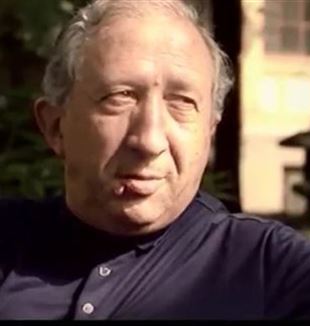
War and Mercy
Although the scenario is different, we re-propose the words of Fr. Giussani on the war in Iraq (Corriere della sera, April 8, 2003), as a contribution to the judgment on the current situation in Ukraine.Dear Editor,
In the bursting of bombs and the burning of cities, what brings back the truth of things to my eyes is the thought of Jesus’ death. I am not able to explain it to myself except by saying this: following Christ who goes to His death on the cross, being like Him, and that’s all.
This is why we have adhered with simplicity to the feelings of love and peace that the Pope has made his own, acknowledging with him that these do not come from adherence to a condemnation of those who want the war, but from engaging all our energies in reactivating an education that trains people to recognize an injustice embedded at the origins of all human decisions—what in Christ’s name is called original sin.
It is impossible for us to give a judgment starting from a psychological or natural analysis, upheld by the tangle of power conceived by the mentality of Saddam, but also of Bush. A judgment is possible if we admit that as certain as it is that the fault lies with both sides (and they will answer for this), it is just as evident that the origin of this does not lie with either one or the other. The original fault, and thus the possibility for despotism, is a point that has its habitat, its genesis, in a mystery. And this is the level, which we cannot probe, where God’s mercy brings a cure.
Now, what I am talking about does not concern only the next life, because God’s mercy brings a cure already in our earthly existence, so that already in this world there is the possibility of peace for some and desperation for others. God is merciful, the Mystery is a mercy that brings with it the cross—a cross that for one side is a destiny of punishment, penance, and humility in a path within peace, for the other is a mystery of boundless rage.
Thus in mercy, the face of the American soldier is identical to that of the Iraqi soldier who finds himself looking into the barrel of the cannon that will shatter him to bits. They are the same; they are no longer one against the other. What a great mystery! In mercy is achieved the vantage of love, which goes all the way to forgiveness. If it does not go this far, everything is a lie; and reason gets encysted in a contradiction: one side accuses the other or accuses himself, ending up in a pure state of desperation.
Salvation is given by following Christ, by identification with His feeling about man and invoking the grace that man may do with his freedom what Christ did with His: abandon his own mortal weakness in the hands of the mercy of the Father, that is to say, of the Mystery of being.
Think of the Psalms or the words of the prophets in the Bible. God intervenes in the journey of the people with a prophecy or with authority and says, for example: “I chastise you! You are chastised, my people!” Or He uses the prophet to speak to the people, tremulous because they are oppressed by a pagan master, and the prophet Nehemiah says: God is stronger, He is the Lord of everything, therefore “Do not be grieved, for the joy of the Lord is your strength” (Nehemiah 8:10). He is speaking about God who brings good, beauty, kindness, in which the people finds the energy for judging what happens.
When a people is going through a bad or painful moment in its history, it can give a judgment on what is just or not in the degree to which it is educated: if it is taught, if it has a guided path, if it is pointed in the right direction, then by following its teachers it can say Yes or No to historical—historically clear—evidence. In these times, the Pope has adequate reasons for saying No to the war, even if the war is waged by people who by themselves would be right to wage it. Therefore let us keep what the Pope says in consideration, because the judgment rests with persons who have been educated to consider what happens from the point of view of the law of God and the memory of the people. John Paul II, after having said that it is wrong to wage war—wrong because there is not an adequate reason—added, “God will judge you,” which is a way of warning those who hold a responsibility to history for the future of the world (this is the reason why we feel above all profound pity for those who have taken onto themselves the terrible responsibility of war).
Certainly, my mother would never have indicated as a reason in favor of war the one that its supporters put forth. But neither would she have followed those who oppose it because of a contrary political calculation. Looking at both sides, my mother would have concluded, “Let us pray to the Lord that He may help us.” And this judgment would have left her serene—not because she was indifferent, but because she was certain that God is the Lord of everything, that everything leads to a destiny of good—in the face of any grave moment in history.#forpeace